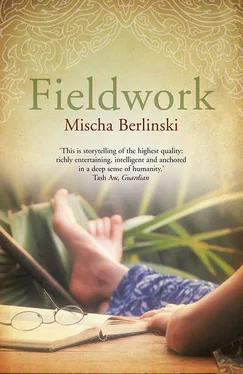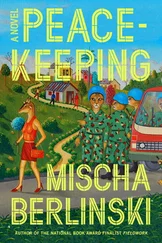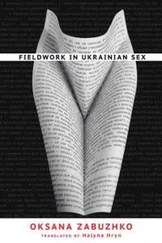From the first, Rachel disliked Atkinson. She thought he was an egotist and arrogant, but then, I countered silently, no one without a certain egotism can spend so long in the West African jungle. I liked Atkinson's forthright prose, and I admired the way that he had defied his father in order to pursue a scholarly career: Atkinson's father, a Chicago commodities broker, sent him to London in the early 1930s to learn the tea trade; but Atkinson promptly enrolled in the celebrated doctoral program in anthropology at the London School of Economics under the legendary Bronislaw Malinowski, and reconciled with his father only after Atkinson's older brother died in combat in the South Pacific.
In his middle twenties, Atkinson went to live with the Doyo in French West Africa for five years, and emerged finally with the book that won him a professorship at Yale, where he spent almost two decades before moving to California. He wrote books about West Africans filled with hard midwestern facts. He described and described again the Doyo — how they married, how they died, how they made millet beer, and how they fought their tribal wars; famously, he himself fought in a Doyo tribal war, and emerged with a scar across his neck and upper body. Atkinson made sure the handsome silver eel-shaped wound was showing in the publicity photos on the back of all his books. Those photos, taken when Atkinson must have been in his early fifties, showed a large, well-muscled man with tight curly hair, silver at the temples, wearing an open-necked shirt. His eyes were hooded, toughening up a face that otherwise might have been delicate. His ridged arms were crossed at the chest, and his hands were large and strong. "He's not my type," Rachel said, looking at the picture. "But I can see what Martiya saw in him."
After she graduated, Tim Blair had told me and Atkinson confirmed, Martiya decided to travel. "Things were over with Atkinson," Rachel said. She twirled a strand of her long hair meditatively. "Martiya must have had the affair with Atkinson, saw that things weren't going anywhere, and left. It explains why she broke up with the bald guy in San Francisco too."
"You think?"
"She saw the writing on the wall. What do you do when you're twenty-three with a guy who's almost sixty? It was a we're-both-moving-on-but-we-care-for-each-other breakup, not an I-hate-you-how-could-you get-my-sister-pregnant breakup," she said.
Rachel's elegant hypothesis was consistent with the facts: from the road, Martiya wrote to Atkinson as she had written to Tim, long letters describing the Second-Class Waiting Room of the Udaipur train station; or the Kurdish wedding to which she had been invited. Atkinson told me that when she came back to Berkeley, Martiya asked him what he thought she should do with herself. Atkinson loved giving young people advice: he told Martiya that her curiosity and intelligence would make her a superior scholar in any number of disciplines, but in his opinion, kiddo , she was a natural anthropologist. Martiya followed her professor's counsel and enrolled in the Ph.D. program in the Department of Anthropology, where Martiya asked Atkinson to supervise her doctoral thesis.
"Well, naturally," Rachel said. "She wasn't stupid ."
Martiya had originally intended to write her doctoral thesis on the Pipikoro. She knew the language, she argued, and her childhood intimacy with the people would allow her to present the culture vividly. But Sulawesi was politically unstable in the early 1970s, which made grants hard to come by. Joseph Atkinson, too, was opposed to her plans: the Pipikoro were not an unknown people in scholarly circles; her own father's research there had been significant. He proposed instead that she study the Dyalo of northern Thailand. No ethnographic portrait of the Dyalo existed. A detailed description of their way of life would prove a valuable contribution to the literature and a good place to start a career. Atkinson told her: "Listen, don't be a martyr. Thailand is a great place to do research. The food is good. The climate's swell. There are lots of flowers and butterflies. Nobody's going to try to eat you." Martiya won a research fellowship to study the Dyalo, largely on the strength of his letter of recommendation.
"Uh-huh," Rachel said knowingly.
While still in Berkeley, Martiya prepared for her time with the Dyalo as best she could. Very little guidance was typically offered to graduate students at UC Berkeley in the Department of Anthropology before they set out to do fieldwork. I spoke by telephone with Lee Cheng, who in 1967 set out from Wheeler Hall to study Saharan nomads, today the L. Stein Professor in the Department of Anthropology at Columbia University. "The philosophy really was that the field was something you did on your own," he said. "The department had the attitude that nothing much could prepare you for anthropological fieldwork, and if you couldn't do fieldwork, then you had no business being an anthropologist. It was a real rite of passage." If you couldn't figure out how to get out to the jungle, the desert, or the savannah; if you couldn't figure out what to ask the natives; if you couldn't figure out how to build rapport with recalcitrant and suspicious locals — perhaps, the department implied, it was time to think about a nice career in sociology, where the data were unlikely to carry a spear. A story circulated in the department about the grad student who asked her hoary and accomplished adviser for his counsel on the field. The professor handed her a copy of the thickest ethnography on his shelf, one of the magisterial works of Kroeber. "I send thee forth, that thou might do likewise," he solemnly intoned. An elderly professor much interested in the Australian aborigines advised Martiya to pay particular attention to forbidden animals and eldest daughters: long years of scholarship, he continued, and a lifetime in the field had taught him that these were the soft spots of tribal, nay, human culture itself. "Don't do what I did and act like an old animal around the forbidden daughters," he said with a sad, greasy chuckle. Atkinson advised her to bring a bottle of tequila, a shot of which, he said, inevitably made everyone just a little more easy when discussing incest taboos, a perennial topic of anthropological inquiry.
There was no anthropological literature on the Dyalo, but in the vast holdings of Wheeler Library she found a slim memoir by a Welsh traveler named Swinton who had lived with the Dyalo in the first half of the century in the remote wilds of China's southern Yunnan Province. He offered a very brief description of the people: the Dyalo, Swinton reported, were found in small villages across southern China, northern Burma, and northern Thailand; Swinton estimated that there were perhaps a hundred thousand Dyalo speakers in the world. The Dyalo, he said, were slash-and-burn farmers and fiercely independent. To emphasize his point, Swinton told a story of a village in which the headman had been shot by his subjects with hunting rifles after he overstepped the bounds of his modest office. The Dyalo had no written language, although Dyalo poetry was subtle and beautiful. Swinton wrote, "The Dyalo language, reflecting the thinking of the Dyalo people, has neither a word for ‘love,' nor ‘sin,' nor ‘salvation.' In Dyalo, it is impossible to ‘forgive' someone. It is a brutally honest language." Swinton noted the Dyalo custom of selling their daughters into marriage, and Swinton wrote that the Dyalo were obsessed with spirits and ghosts, which they reckoned existed all about them in great numbers.
When Martiya herself went off to live with the Dyalo in the fall of 1974, she had very little more than this description to go on.
Joseph Atkinson and I gossiped about Martiya through February and into early March, as the very hot season came over Chiang Mai and the grinning, good-natured elephant outside the Westin Hotel turned brown. The hotel's gardener watered the topiary daily but was unable, as the days grew warmer, to keep the animal green: first the elephant's trunk, rearing high, changed color, then his massive, drooping ears. Day by day, the line of brown drifted southward across his mighty back. Finally, only the tail, protected during the searing hours of the late afternoon by the long shadow of the hotel itself, kept its original winter hue. Hot! Every visit to the Westin, every new letter from Atkinson, saw the hotel doorman, dressed in elaborate silken costumes appropriate to the court of great King Chulalongkorn, swing open the heavy glass doors with ever less alacrity, the pained look on his smooth face suggesting that all that movement in the heat was an affront to common sense. My underwear clung damply to my butt.
Читать дальше












